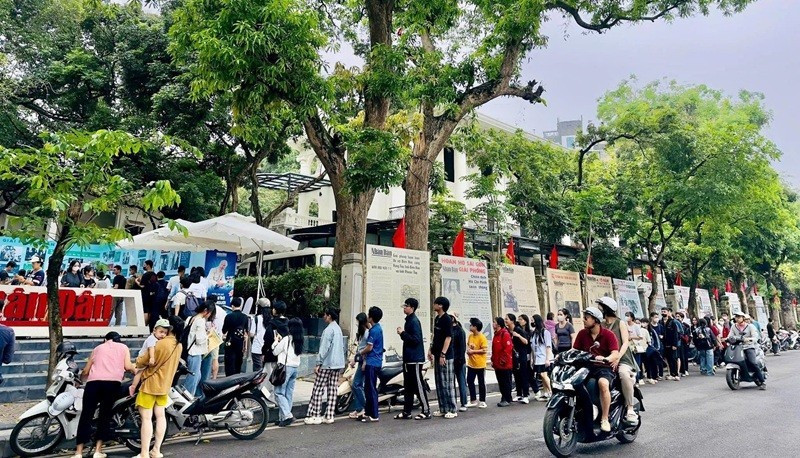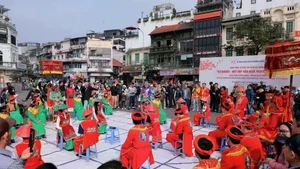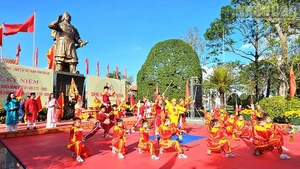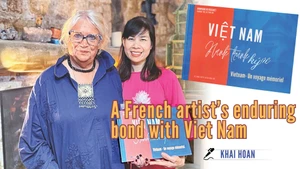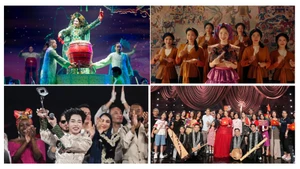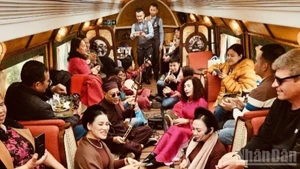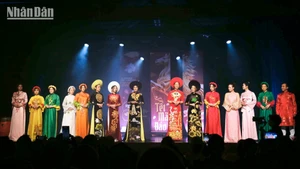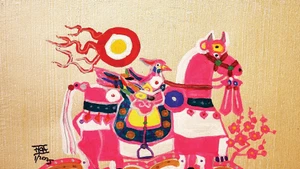Amid the rapid development of digital platforms and increasingly fierce competition, promoting identity and positioning the brand has become a vital factor for the press to affirm its role as "an essential means of information for social life".
Not trade off core values
The brand and identity of the press are not only reflected in names, logos, or presentation styles, but more deeply in the core values that have been built and nurtured over time. These values include history, people, culture, vision, and style, all of which create the distinctiveness of each press agency and help the public easily recognise it. For local newspapers and broadcasters, identity is often closely tied to the cultural, historical, and social characteristics of the local community. Many readers said that they prefer media products with a clear identity that accurately reflect the values and culture of the local area.
In the context of fierce competition from social networks and digital platforms, along with the merger and consolidation of many press agencies, shaping identity and building a brand will help press agencies create prestige and competitive advantages in the media market.
The explosive development of new media has changed the public’s way of accessing news. Instead of watching news on television or reading newspapers, many people prefer to seek short, sensational information on social networks and online news sites. Faced with the pressure of information competition and retaining readers, some press agencies have become caught up in the race to publish trivial, sensational content designed simply to attract views, often lacking political, directive, or humanitarian value. This deviation from standards has undermined readers’ trust in the press.
Assoc. Prof. Dr. Bui Hoai Son, a full-time member of the National Assembly's Committee on Culture and Society, frankly pointed out that: "Orthodox journalism is not allowed to follow pure tastes, nor trade core values for views or shares. At the same time, journalism cannot stand outside the technological revolution changing the public's information reception behavior every day".
Those challenges require the press to make strong changes to attract readers, establish an information "battlefield", promote its own identity, and provide accurate and objective information for the development of the country. To achieve this goal, creating a mark and building a separate brand for each press agency is considered a necessary solution to affirm quality and build trust in the community.
One content in the Draft Press Law (amended) that is welcomed and highly appreciated by journalists is the addition of a separate chapter on journalism activities in cyberspace. Accordingly, the Draft stipulates that general electronic information sites and social networks must strictly prohibit the production, editing, posting and broadcasting of journalistic news as well as information prohibited by law such as false news, causing division in the great national unity bloc, distorting history, promoting bad customs, and superstition.
Lawyer Truong Anh Tu, President of the TAT Law Firm, analysed: "This regulation helps clearly distinguish between mainstream journalism and unofficial platforms, protecting the reputation and brand of the press agencies. However, it is also essential for press agencies to take proactive measures to protect themselves by producing high-quality, distinctive content and establishing their own brand to attract readers."
Pioneering in orienting public opinion
Currently, the reorganisation of the Party press agencies and local radio and television stations in the spirit of Resolution No. 18-NQ/TW is being implemented synchronously from central to local levels. This process poses many challenges for press agencies as they have to reorganise and transform their operating models, methods of operation, as well as reposition their brands for new products. A new point in the Draft Press Law (amended) is the regulation on the model of "Main multimedia press group" and "Local press group".
According to Dr. Le Hai, member of the Editorial Board of the Online Communist Review, the formation of media groups is an inevitable trend to perfect the institution, press activity environment, and taking advantage of the combined strength of different types of press to create multi-platform products, meeting modern trends. This model allows press agencies to focus resources and implement strategies to build identity and brand in a synchronous and consistent manner.
In reality, if old brands are exploited and utilised effectively to create a new identity after a merger, these "media groups" will gain influence and dominate the market. However, to achieve this, each press agency must have a suitable strategy and avoid situations where the old brand is not exploited properly, and a new brand must be built from scratch. This could be costly in terms of both time and resources.
Experience from many press agencies shows that focusing on specialised, creative, and unique content is a vital solution for building identity and shaping a brand for a press agency. For example, the ethnic language broadcasting channel of the Radio the Voice of Viet Nam (VOV) successfully produces content specifically for ethnic minorities, meeting their information needs while reinforcing its role as a "bridge" between the Party, the State, and the people, particularly those in remote areas. Similarly, recently, Viet Nam Television has officially undertaken the task of providing national external television services to promote Viet Nam's image, affirming a prestigious and trustworthy media brand, contributing to enhancing the country's position in the international arena.,
In addition, digital transformation is the key for the press to break through in the context of fierce competition. Modern technology application, from artificial intelligence (AI) to data analysis, helps press agencies optimise their content, personalise readers' experiences and increase interaction from products with their own mark.
Prof. Dr. Ta Ngoc Tan emphasized that digital transformation is not only just a trend but it is also a decisive factor for the survival of journalism in the new era. Therefore, mastering technology to create unique products, thereby promoting identity and positioning brands — particularly in the context of deepening international integration — is imperative if press agencies and journalists do not want to be left behind in this digital age.
In recent times, the use of data analysis technology to understand readers' needs has helped many major newspapers worldwide, including in Viet Nam, such as Nhan Dan, Vietnam News Agency, VietNamNet, Tuoi Tre, and others, to create content that is suitable with and attracts a large audience. For example, the impressive and unique media products of Nhan Dan Newspaper on the 70th anniversary of the Dien Bien Phu Victory, the 50th anniversary of the Liberation of the South and National Reunification, and the 135th anniversary of the birthday of President Ho Chi Minh, have helped firmly position the Nhan Dan Newspaper brand with Generation Z, who is more accustomed to interacting on social media.
Besides, a crucial factor in forming identity and building a brand of a press agency is the editorial office culture. This is the foundation for harmonising the unique identity of member units with the overarching brand of the press agency after mergers. Editorial office culture must be based on core values such as social responsibility, humanity, and a strong connection with the community.
Press agencies need to invest in training their teams, encourage creativity, and reinforce professional ethics, avoiding temporary trends. Building editorial office’s culture not only helps preserve identity but also create motivation and confidence among journalists, especially after mergers.
On the other hand, according to Dr. Nguyen Duc Dung, from the Viet Nam Academy of Social Sciences, “press identity is not only a cultural value but also an economic asset, helping press agencies build trust and expand their market.”
The Vietnamese revolutionary press is now facing a great opportunity to affirm its role as a sharp communication tool, a forum for the people, and a pioneering force in the orientation of public opinion. In the context of the rearrangement of press agencies, maintaining identity and enhancing the brand is both an urgent requirement and a determining factor for the survival and sustainable development of the press. With support from policies of the Party and State, along with the correct and appropriate strategies, press agencies can overcome all challenges and sustainably advance in the new era.
